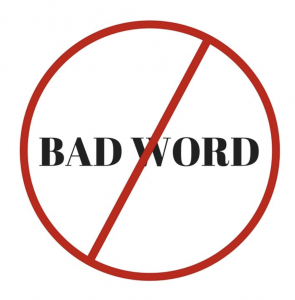08 May
2020
How to Improve Your Content – Part 2 – 5 Tips for Writing Concisely
If you saw our April post on writing with clarity, you will be well on the way to making your content more effective. You are already organizing your copy, keeping to layman’s language, and including relevant visuals, etc. A quick reminder – attention spans, especially for digital readers, are notoriously short. Leaving white space, using clear headings and sub-headings, and including visuals will only go so far in terms of making your message effective. Brevity is key. If, like many of us, you are inclined to write rather lengthy prose, it’s time to sharpen up your writing and eliminate unnecessary verbiage.
Writing Concisely
1. Avoid redundancies
Repetition does not make your message more effective. Say what you want to say just once. While not repeating your main points, it’s also worth taking a critical look through your copy and spotting redundancies.
For example (italicized words are redundant, their meaning implicit in the bolded word):
…is an added bonus.
The end result will be the same.
… includes a free gift.
…are completed on a daily basis.
…looking at our past history…
…need to plan ahead.
…as is our usual custom.
Can you honestly say you’ve never written one of the phrases above? Establish the practice of editing your writing and ruthlessly deleting these redundancies. Be careful also of redundancies that occur with acronyms:
ATM machine (ATM = Automatic Teller Machine)
PIN number (PIN = Personal Identification Number)
2. Delete unnecessary qualifiers
Ruthlessly delete these words: ![]()
rather, quite, very, really, absolutely
The words above have little meaning, plus over-qualifying a word or statement detracts from its effect. Consider the following statements – then re-read them with the italicized words omitted. See what I mean?
I am really sorry about the delay on your shipment; we’ve been rather busy and are quite understaffed at present.
I am absolutely sure we can do that for you.
3. Eliminate that wherever possible – but be careful!

Many times that is unnecessary, grammatically correct but not essential. Eliminating it does not change the sense of a sentence but does eliminate an extra and far-too-frequent word.
Consider:
I told the client that she would benefit from switching to a more balanced portfolio.
or
I know that we can save money by cutting back on staff.
You can see the above sentences work perfectly without that – eliminating does not change the sense.
However:
I need that file by Friday afternoon.
Omit that in this sentence and it makes little sense. In this case, that refers to a particular file; if we omit that, we need to replace it with some other description of the required file. However, it’s worth highlighting every that in your writing and considering if it’s needed.
4. Use ‘strong’ verbs instead of adding adverbs
Great advice for creative writing, nonetheless, this is an effective practice for business writing also. One ‘strong’ verb in place of a weaker verb accompanied by an adverb not only reduces word count, it generally makes your prose more effective also. Consider:
Arriving late, he entered the room quietly. vs Arriving late, he crept into the room.
She spoke argumentatively to her superiors. vs She challenged her superiors.
He worked quickly to meet the deadline. vs He raced to meet the deadline.
She spoke enthusiastically about the new project. vs She enthused about the new project.
5. Learn how to precis
Back in the dark ages, when I was a senior in high school, this was a skill we were expected to master. We’d be given a piece of prose and asked to reduce it to around one third of its original length without losing any of the essential points. Admittedly, I didn’t find it easy then and I still don’t – but it can be done; some of the tips mentioned above will help but to significantly shorten a piece of writing requires more than eliminating redundant words.
Just to be clear, a precis is not the same as a synopsis. A precis will still contain all the main points, and even some detail, where necessary. Less relevant detail will be omitted. It’s a skill worth practicing. Try reading a paragraph; ask yourself the main message of that paragraph (usually found in either the opening or closing sentence) then ask yourself which of the supporting details in the rest of the paragraph are truly essential.




